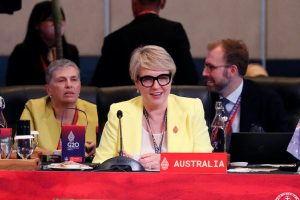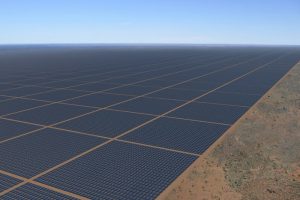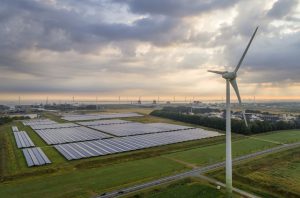The Australian government said on Wednesday (August 21) it has approved plans for a solar power cable extending from the north of the country to Singapore.
The $13.5-billion solar project will relay energy from a giant solar farm in the Northern Territory to Singapore via a 4,300km underwater cable.
Environment Minister Tanya Plibersek said Sun Cable‘s flagship Australia-Asia PowerLink project, would help meet the growing demand for renewable energy at home and abroad.
ALSO SEE: Warning on Tibetan Plateau as World Sees Rise in Heat Records

Plibersek said the vast solar farm would generate enough energy to power three million homes and would include panels, batteries and eventually, a cable linking Australia with Singapore.
“It will be the largest solar precinct in the world and heralds Australia as the world leader in green energy,” she said.
A final investment decision is expected in 2027 with electricity supply to begin in the early 2030s, according to SunCable.
The approval comes with strict conditions to protect nature and the project must avoid the habitat of greater bilby, which are small rabbit-like marsupials with long floppy ears, Plibersek said.
Over two stages of development, the project aims to deliver up to 6 gigawatts of green electricity to large-scale industrial customers in Darwin, the capital city of Australia’s Northern Territory, and in Singapore.

The approval comes as the centre-left government ramps up renewable energy projects even as the opposition coalition proposes building nuclear plants to replace coal-fired power by 2050, in a country where nuclear power is currently banned.
SunCable, owned by billionaire Mike Cannon-Brookes, said the approval was “a vote of confidence” in the project.
Cannon-Brookes, the co-founder of tech firm Atlassian turned environmental activist, said last year project was viable and that outside investors would be drawn to the project.
“SunCable will now focus its efforts on the next stage of planning to advance the project towards a final investment decision targeted by 2027,” SunCable Australia managing director Cameron Garnsworthy said in a statement, which did not provide details of its financing plans.
SunCable said it was in talks with Singapore’s energy regulator on the conditional approval for the project’s cable inter-connector component and with the Indonesian government on building the cable in its waters.
The project received clearance from the Northern Territory government and the territory’s environment watchdog last month.
- Reuters with additional editing by Jim Pollard
NOTE: The image at the top of this report was changed and a further pic put amid the text on August 21, 2024.
ALSO SEE:
Australian Banks Wind Down Loans to Carbon-Intensive Projects
Australia’s Clean Energy Plan Delays $10.6bn Origin Takeover Bid
Bickering Billionaires Put $21bn Asia Solar Power Plan in Doubt
Australia-Singapore Solar Power Project Wins Government Support
Australian Billionaire Seeks Quantum Leap for Green Hydrogen
Global Energy Crisis Driving Faster Shift to Renewables: IEA’s Birol
Singapore Plans to Ramp up Power Imports by 2035
Australia, Singapore Agree New ‘Green Economy’ Deal
Solar Tops Coal Briefly as Australia’s No-1 Power Source – ABC
























